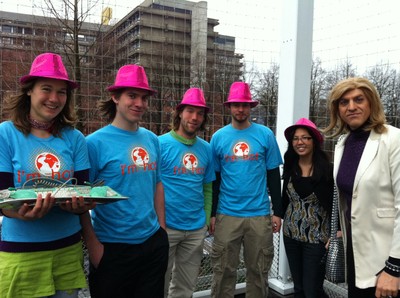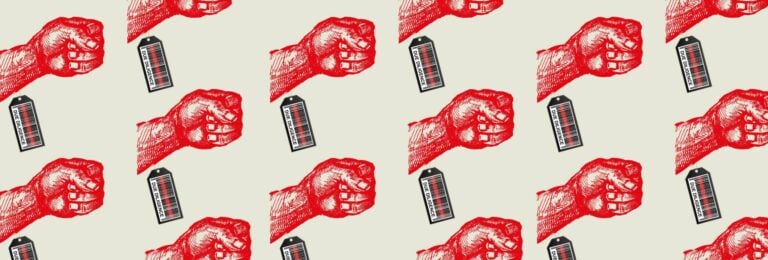
Sustainable procurement of computers – an effective tool for improving labour conditions in the electronics industry
Over the past three years, the Procure IT Fair project has been advocating the sustainable public purchasing of computers in Europe. This final statement marks the successful completion of the project, summarizes the project’s achievements and looks at what lies ahead.
The EU-funded Procure IT Fair project was carried by a group of European civil society organisations: Suedwind – Austria, EAP – Czech Republic, WEED – Germany, CES – Hungary, SOMO – the Netherlands, Karat – Poland, and Setem – Spain.
Ultimately, the beneficiaries of the project are the people who work in the computer industry in developing countries. Through a variety of strategies and activities – including research, lobby, media work, including active use of social media 2.0, publications, documentaries & clips, and campaigning – the Procure IT Fair project has contributed to increasing the awareness on the appalling working conditions and environmental issues in the global electronics supply chain. The main targeted audiences of the Procure IT Fair project throughout Europe included purchasers and policy makers with local governments and institutions of higher education; public procurement bodies; students and teachers; computer brands, IT service providers, and the media.
Procure IT Fair has effectively demonstrated that these different groups can contribute to improving labour conditions in the computer industry via sustainable public procurement. As a result of the Procure IT Fair campaign, for instance, universities and universities of applied sciences in the Netherlands have agreed to start including working conditions in computer production, where so far sustainable purchasing of computers focused primarily on environmental aspects.
Highlights
Procure IT Fair has done research into labour conditions in the computer industry. In 2009, The dark side of cyberspace. Inside the sweatshops of China’s computer hardware production, was published, looking into working conditions, wage and overtime at Excelsior Electronics, a Chinese supplier to Fujitsu. In 2010, Under Pressure – Working Conditions and Economic Development in ICT Production in Central and Eastern Europe came out about, detailing the role of migrant workers, the enormous work pressure, extremely flexible working time requirements and poor pay in the ICT industry in Hungary, Romania and the Czech Republic. Also in 2010, research was issued on the abominable working and living conditions of migrant labour in the Malaysian computer industry: Migration in a Digital Age(opens in new window) .
Procure IT Fair has published buyers guides providing public purchasers with practical guidance to include social criteria in public tenders for computers. These ‘Buy IT Fair guides’ are available in English, French(opens in new window) , German(opens in new window) , Spanish(opens in new window) , Finnish(opens in new window) , Hungarian(opens in new window) , Czech(opens in new window) and Dutch(opens in new window) . All versions have been adapted to the respective national contexts.
Procure IT Fair has also produced footage, including documentaries and video clips. Digital handcraft(opens in new window) from 2008 shows working conditions in computer factories in China. In Blue elephants(opens in new window) , made in 2010, the dire labour and living conditions of migrants working for Dell, HP, Intel and other well known brands in Malaysia are shown. work. In the entertaining video clip Senor Pezzi buys global(opens in new window) the link between is made the work of a commercial purchaser and the daily reality behind the computers he intends to buy.
Procure IT Fair has gathered and published best practices of public institutions and other organisations in Europe that take into account social considerations in the purchasing of computers, such as adherence to the ILO Core Conventions. These best practices show that it is possible to include social considerations when practically procuring computers. The section on the Procure IT Fair website(opens in new window) where these best practices are published will be maintained throughout 2011.
It is a promising and encouraging development that public procurement is increasingly used as a tool to improve labour conditions in the global supply chain of electronics. While many challenges still lie ahead, we are convinced these can be dealt with by ambitious policies – on European, national and regional levels – and the practical implementation of social criteria in tenders by cities and institutions.
The Procure IT Fair project partners will continue to work on sustainable public procurement of computers and labour issues in the global electronics industry.
SOMO / Weed(opens in new window) / Suedwind(opens in new window) / EAP(opens in new window) / CES(opens in new window) / Setem(opens in new window)
Partners
Related news
-
 The hidden human costs linked to global supply chains in ChinaPosted in category:News
The hidden human costs linked to global supply chains in ChinaPosted in category:News Joshua RosenzweigPublished on:
Joshua RosenzweigPublished on: -
 Major brands sourcing from China lack public policies on responsible exitPosted in category:News
Major brands sourcing from China lack public policies on responsible exitPosted in category:News Joshua RosenzweigPublished on:
Joshua RosenzweigPublished on: -


